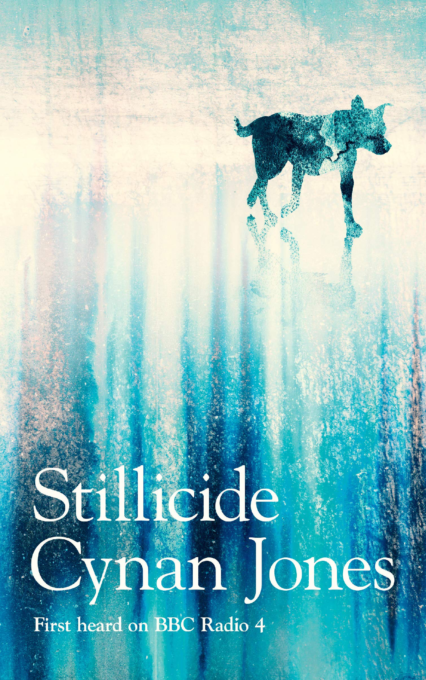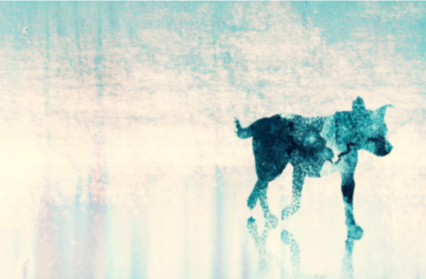Gareth Kent reviews Cynan Jones’s intimate portrayal of life’s perseverance in the face of ecological decline, in his new novel through short stories, Stillicide.
 Originally aired in the summer of 2019 as a BBC Radio 4 broadcast, Cynan Jones’s Stillicide is a collection of twelve interrelated short stories set in a future where the effects of climate change have encroached upon the United Kingdom’s proverbial doorstep. Water has become a commodity and is delivered to cities through the use of a water train. The water shortages, however, also necessitate the need for an ice-dock to counter the shortage where an iceberg is transported to the city to serve as a new water source. Although, the construction of the ice-dock also prompts the displacement of residents – relocating them to glorified shipping containers – a fact that incites protests and frequent sabotage attempts on the water train. As ‘attacks on the line had increased’ the water train is outfitted with armed guardsmen while the track is guarded by patrolling soldiers to counter potential saboteurs. John Branner is one of the soldiers who guards the tracks, and it is his narrative that acts as a primary narrative that binds the collection into a cohesive whole.
Originally aired in the summer of 2019 as a BBC Radio 4 broadcast, Cynan Jones’s Stillicide is a collection of twelve interrelated short stories set in a future where the effects of climate change have encroached upon the United Kingdom’s proverbial doorstep. Water has become a commodity and is delivered to cities through the use of a water train. The water shortages, however, also necessitate the need for an ice-dock to counter the shortage where an iceberg is transported to the city to serve as a new water source. Although, the construction of the ice-dock also prompts the displacement of residents – relocating them to glorified shipping containers – a fact that incites protests and frequent sabotage attempts on the water train. As ‘attacks on the line had increased’ the water train is outfitted with armed guardsmen while the track is guarded by patrolling soldiers to counter potential saboteurs. John Branner is one of the soldiers who guards the tracks, and it is his narrative that acts as a primary narrative that binds the collection into a cohesive whole.
With his wife dying from illness, and the prospect of life without her becoming an inevitability, John struggles to accept the thought of living without her. In response to the news of her impending death, he considers ending his own life: ‘I could just switch off my greenlighter. That’s all it would take. The train guns wouldn’t recognise me. And they’d fire’. He becomes disconnected from the world at large and tries to live solely for his duty as a form of reprieve from his pain, ‘sliding away from the wider world’ and ‘into the big hole in his ground, the time ahead without her’. John’s disconnection is evoked through the frequent allusions and occasional onomatopoeic use of water in an ostensibly effortless way, particularly how easy it relays John’s detached mental-state to the reader: ‘The rain hit with the rhythm of train wheels. Hit hood. Hit his hood. His brain was in a cave’. The narrative primacy of the water shortage and the clever wordplay Jones employs to evoke it–where water secretes from every word–provides readers with a reflection of a world that is saturated with a thirst for water, love, and survival. Yet, despite its melancholic tone and dystopian underpinning, most of its interlinked narratives counter the notion of dystopia through the enduring adaptability of its characters. Stillicide effectively scoffs at the dystopian and applauds life’s adaptability to survive, be that human or otherwise:
People get on with it. People have always got on with it. Dystopia is as ridiculous a concept as utopia. Ultimately, we’re animals… and animals find ways.
The stories, while interconnected, offer a fairly expansive look into the world of Stillicide, particularly how each of its inhabitants endures. A nurse considers an affair in response to the increasing disconnect of her husband. Two children go in search of a stray dog, a university professor in search of dragonfly eggs, and a dying woman combs for the final words that will echo in a letter to her husband. Meanwhile, an elderly couple collects trinkets and artefacts from the past on the shoreline, while a conference rages on between government officials and the press on the ethicalities regarding the construction plans for the ice-dock.
Stylistically, Stillicide does not deter from the terse prose characteristic of Jones’s most recent output. The stripped-back writing lends itself perfectly to conjuring the little joys that remain even during times of strife: of lovers, solitude, paper flowers, the camaraderie of friendship, and the happy gibber of children at play. Delicately written with a humane intelligence, each story remains effective whether they are read in isolation or as a cohesive unit. Through these stories, Jones conjures a world on the brink that manages to endure, always pushing onwards into the uncertain future. The restrained, yet, straightforward portrayal of each character’s thought process works to amplify the emotive resonance experienced by the reader. In a lesser writer’s hands, this restrained approach could have easily been reductive and dull, but Jones’s clever and precise use of words produces a work of immersive brilliance instead.
The tautness of its prose is, therefore, quite deceptive. The sentences are snappy, short, and when not, they demonstrate a poetic virtuosity that makes reading most of them aloud a particular delight – undoubtedly owing to the book’s origin in radio – as this following passage demonstrates:
Sometimes felt showered seed on her skin. Took a while to link the tickle to the spiky, sporadic pops, punctuations in the air, as the flat, mature pea-pods on the bushes burst in the sun.
Ultimately, Cynan Jones continues to elevate Welsh literature with Stillicide being a high-water mark for what can be achieved through visceral, yet taut, storytelling. Each passage evokes a mood so smoothly that it is easy to imagine Jones labouring for hours at a time on the significance and sound of every word. It is a novel with little fault other than making this reviewer yearn for more; though, readers who enjoy moderate world-building and exposition may take issue with its minimalist approach. Despite clocking in at under two-hundred pages, however, Stillicide is far from a light read – it is an ocean depth masquerading as a lake.
Stillicide by Cynan Jones is available now from Granta Books.
More of Wales Arts Reviews’ features on Cynan Jones can be found here.
Gareth Kent is a regular contributor to Wales Arts Review.



 Enjoyed this article? Support our writers directly by buying them a coffee and clicking this link.
Enjoyed this article? Support our writers directly by buying them a coffee and clicking this link.








